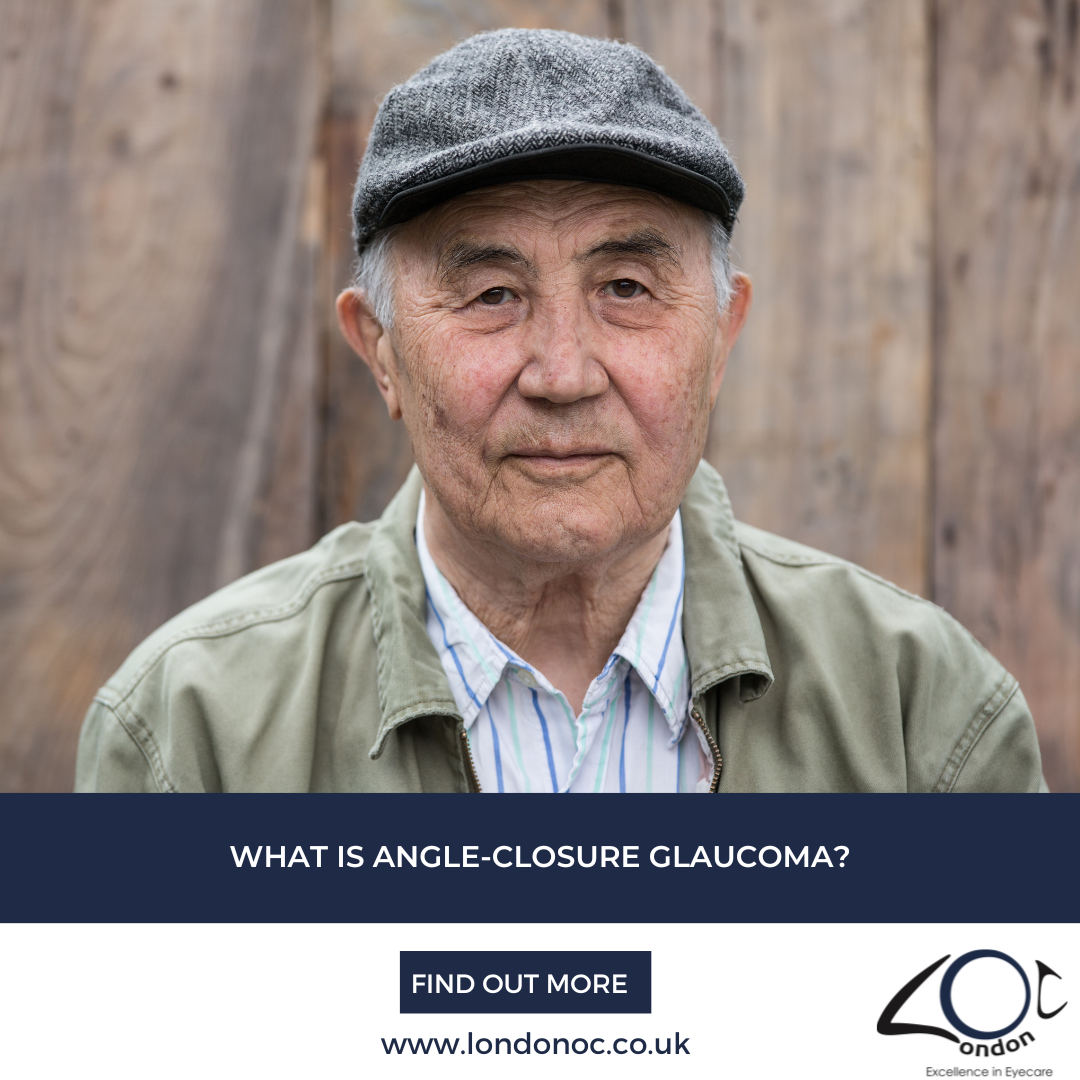Closed-angle glaucoma, also known as angle-closure glaucoma (ACG), is a less common but more acute and potentially severe form of glaucoma. In angle-closure glaucoma, the drainage angle between the cornea and iris is blocked, preventing the normal outflow of aqueous fluid from the eye. This blockage leads to a sudden increase in intraocular pressure (IOP), which can cause rapid damage to the optic nerve and result in vision loss if not promptly treated.
Key features of closed-angle glaucoma include:
Sudden Onset: Unlike open-angle glaucoma, which often develops slowly over time, closed-angle glaucoma can have a sudden and severe onset. This is known as an acute angle-closure attack.
Symptoms of Acute Attack:
- Severe eye pain.
- Headaches.
- Blurred or cloudy vision.
- Halos around lights.
- Nausea and vomiting.
- Redness in the eye.
- Decreased or sudden loss of vision.
Increased Intraocular Pressure (IOP): The blockage of the drainage angle leads to a rapid increase in intraocular pressure, which can cause damage to the optic nerve.
Risk Factors:
- Age: Closed-angle glaucoma is more common in older individuals.
- Hyperopia (farsightedness): Eyes with a shorter axial length or a more crowded anterior segment are at higher risk.
- Family history: A family history of closed-angle glaucoma may increase the risk.
- Ethnicity: Individuals of Asian and Inuit descent are at higher risk.
Chronic Angle-Closure Glaucoma: In some cases, closed-angle glaucoma may develop gradually, leading to chronic symptoms rather than an acute attack.
Treatment: Immediate medical attention is required to manage an acute angle-closure attack. Treatment may involve medications to lower intraocular pressure, laser therapy (laser peripheral iridotomy) to create a hole in the iris and improve fluid drainage, or surgical intervention.
It's important to note that not everyone with narrow angles will develop angle-closure glaucoma, and regular eye examinations are crucial for identifying risk factors and potential issues. If you experience symptoms suggestive of angle-closure glaucoma, seek emergency medical attention to prevent vision loss.
Book in for your consultation here with Mr Vik Sharma, Consultant Ophthalmologist at LondonOC.
